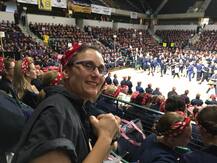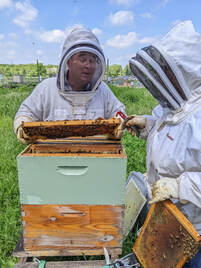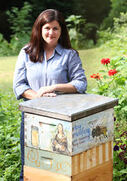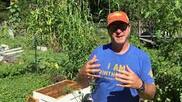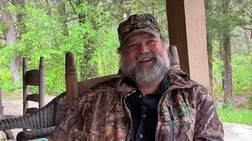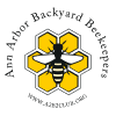|
Date: Tue, Sep 13, 2022 | Time: 7 pm | Location: Auditorium at the Matthaei Botanical Gardens & Online on Zoom Go with the Flow: My Experiences with the Flow HiveWho came up with the Flow Hive? What is a Flow Hive? Where are Flow Hives most effective? When were they invented? How does it work? Why should you get one? Or why shouldn't you?
Please join us - our monthly meetings are always free and open to the public!Date: Tue, Aug 9, 2022 | Time: 7 pm | Location: Auditorium at the Matthaei Botanical Gardens & Online on Zoom Topic: What to Do About Angry Bees
The main presentation starts at 7 pm, but feel free to arrive in the auditorium or sign in online starting at 6:30 pm for a beginners Q&A session. See our Facebook page or join via the Zoom link above. Speaker: Melissa Caughey. Melissa is a backyard chicken keeper, seasoned beekeeper, Master Gardener, crafting maven, culinarian and nurse practitioner. She contributes to HGTV, DIY Network, Angi, Grit Magazine, Community Chickens and Keeping Backyard Bees. She can be found traveling the country presenting on chicken keeping, beekeeping, gardening and crafting at both private and public events including Country Living Magazine Fairs and the Mother Earth News Fairs. Melissa has been featured on NPR and in People Magazine, Reader's Digest, Forbe's Magazine and Better Homes and Gardens Magazine. She also serves as an advisor to A-list celebrities keeping chickens. Melissa's website has won multiple awards including The Blue Ribbon Blogger Award from Country Living Magazine and Top 10 Gardening Blogs by Better Homes and Gardens Magazine in 2014 and 2016. Her first best-selling book, A Kid's Guide to Keeping Chickens, has won the 2016 Learning Magazine Teacher's Choice Award and the 2016 American Academy for the Advancement of Science's Prize for Excellence in Science Books. Her second book, How to Speak Chicken, has been named as one of 2017's Best Bird and Birding Books by Forbes Magazine and has won Silver in the Foreward INDIES Book of the Year Award in the Pets and Animals Category. Her follow-up book, Chicken Wisdom, features Melissa's original quotes and favorite thoughts bringing inspirational and encouraging messages filled with kindness to the reader released during the start of the pandemic. A 2023 How to Speak Chicken wall calendar releases in July 2022 and look for her new book, My Chicken Family, in early 2023. Melissa calls Cape Cod home, where she lives with her husband, two children and a menagerie of animals. For more, please visit: www.tillysnest.com Please join us - our monthly meetings are always free and open to the public!Date: Tue, July 12, 2022 | Time: 7 pm | Location: Auditorium at the Matthaei Botanical Gardens & Online on Zoom Topic: Preparing to Overwinter Your Hives in MichiganThe main presentation starts at 7 pm, but feel free to arrive in the auditorium or sign in online starting at 6:30 pm for a beginners Q&A session. See our Facebook page or join via the Zoom link above. NOTE: Please post questions/comments in the Zoom chat. Facebook is not monitored during our educational meetings.
I became a Master Gardener (and later as an Advanced Master Gardener and Master Gardener of the Year), by volunteering at Michigan State University Tollgate Education Center (where I was the recipient of the Golden Shovel Award and, later, the Ginger Meyer Award) helping, for over 20 years, with, among other things, the High Density Orchard (being the Area Leader for over 20 years), Maple Syrup and Beekeeping Programs and the 4H club. I have also been volunteering for several years with:
I am also a member of several other organizations including, but not limited to: American Soybean Association, Arbor Day Foundation, Michigan Bar Association, Michigan Soybean Association, and Rocky Mountain Elk Foundation. Please join us - our monthly meetings are always free and open to the public!Topic: The Game of DronesHoney bee drones are the Rodney Dangerfields of the bee world: they (often) get no respect! Learn all about the amazing drones and their mysterious drone congregation areas (and how to find them using the other kind of drone) at this informative talk. The main presentation starts at 7 pm, but feel free to sign in starting at 6:30 pm for a beginners Q&A session. See our Facebook page or join via the Zoom link above. NOTE: Please post questions/comments in the Zoom chat. Facebook is not monitored during our educational meetings.
Please join us - our monthly meetings are always free and open to the public!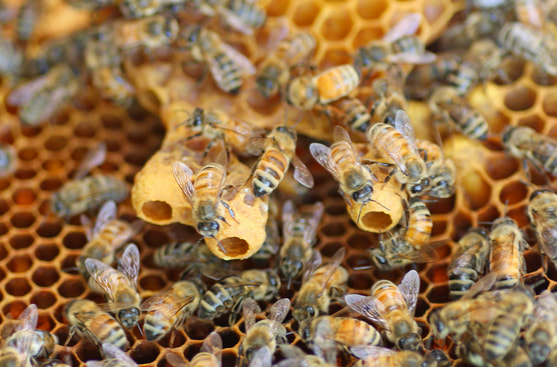 https://www.honeybeesuite.com https://www.honeybeesuite.com Beekeeping is all about doing the right things at the right time, and a big part of being able to do the right things at the right time is preparation. For example, don't wait until you see swarm cells to take action to prevent swarming (you're probably too late at that point anyway), but prepare for spring swarms by adding more space or splitting your hives. Not sure what you need to prepare for? The Beekeeping Calendar from Cornell University is a great resource! https://pollinator.cals.cornell.edu/sites/pollinator.cals.cornell.edu/files/shared/documents/Beekeeping%20Calendar%20for%20the%20Northeast.pdf Happy Beekeeping! May's Monthly Meeting: The Three Things You Need to Get Right to be a Successful Beekeeper4/15/2022
Topic: The Three Things You Need to Get Right to be a Successful BeekeeperStressing the importance of managing varroa, managing queen events, and feeding. The main presentation starts at 7 pm, but feel free to sign in starting at 6:30 pm for a beginners Q&A session. See our Facebook page or join via the Zoom link above. NOTE: Please post questions/comments in the Zoom chat. Facebook is not monitored during our educational meetings.
Please join us - our monthly meetings are always free and open to the public!Topic: Increasing Honey YieldWhat is necessary to have the highest average production from your colonies and the inputs/management to help achieve this. The main presentation starts at 7 pm, but feel free to sign in starting at 6:30 pm for a beginners Q&A session. See our Facebook page or join via the Zoom link above. NOTE: Please post questions/comments in the Zoom chat. Facebook is not monitored during our educational meetings.
From Kent: We have a beekeepers school on our farm each year, three days, all hands-on in live colonies. Topics range from very basic to advanced. The school is free with a very good meal served each day. Everyone is welcome, no registration, just show up. We also have groups come to the farm throughout the summer to practice specific management, just call to make sure we're home. Please join us - our monthly meetings are always free and open to the public!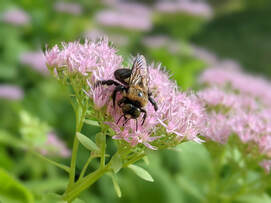 Did you know that there are over 450 species of native bees in MI! The kicker is that honey bees are NOT one of them! It's important for beekeepers to remember our native pollinators. Who are our native MI bees? Here's a short list, but I'd also recommend this YouTube video by MSU professor of entomology Rufus Isaacs. https://www.youtube.com/watch?v=T2N5DoyRoLI All Seasons Bees: Bumble Bees Sweat Bees Carpenter Bees Spring Bees: Mason Bees Miner Bees Cellophane Bees Cuckoo Bees Summer Bees: *Squash Bees* (my favorite!: https://www.facebook.com/DyceLab/videos/359136995931540) Leafcutter Bees Long-horned Bees Top 10 Things You Can Do To Help Native Pollinators: 1. Provide Habitat: Don't have a turf grass lawn. Put up a native pollinator house. 2. Don't Use Pesticides: Or, if you HAVE to use them, find the least harmful time, location, season, etc. to use them. 3. Plant Pollinator Friendly Plants: And not 1 or 2. Pollinators are much more likely to frequent clusters or bunches of flowering plants. 4. Plant Trees: Trees are the meadows of the sky! Maples and Willows are especially important as early pollen sources while fruit trees (NOT PEARS!!!) provide nectar. 5. Become a Wildlife Gardener and/or Plant Native Plants 6. Adopt a Monarch and Plant Milkweed: Butterflies are important pollinators too! 7. Protect Grasslands and Native Habitat: Through community endeavors and by talking with your local government officials or voting for habitat conservation. 8. Join Conservation Organizations: And donate generously! 9. Post a Yard Sign: To advertise the importance of your pollinator garden. 10. Spread the Word About Native Pollinators on Social Media: Or at your local garden or plant club or on your blog. |
Archives
February 2024
Categories
All
|

